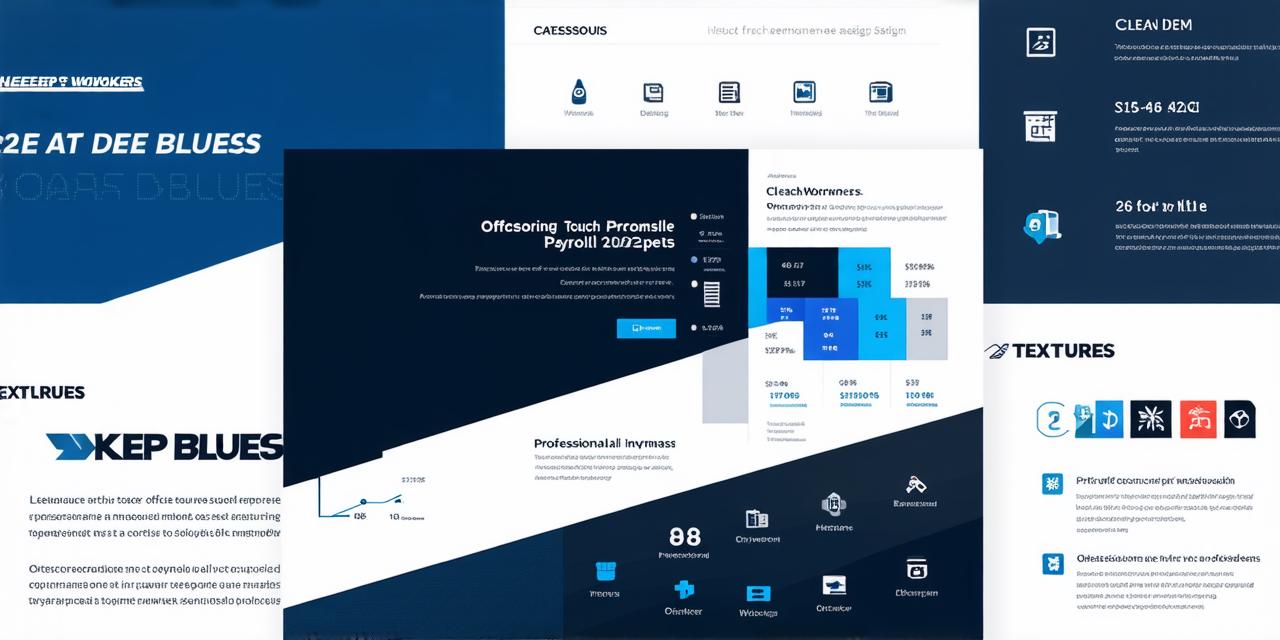How much does outsourcing payroll cost
BlogPayroll is an essential aspect of any business, and it can be a time-consuming and costly process. Many businesses choose to outsource their payroll processes to save time and money. But how much does outsourcing payroll actually cost? In this article, we will explore the various factors that can affect the cost of outsourcing payroll and provide some examples to help you determine whether it’s right for your business.
Table of Contents
ToggleFactors Affecting the Cost of Outsourcing Payroll
There are several factors that can affect the cost of outsourcing payroll, including:
- The more employees your business has, the higher the cost of outsourcing payroll will be. This is because processing payroll for a large number of employees requires more time and resources.
- The complexity of your payroll processes can also affect the cost of outsourcing. If you have complex payroll processes, such as calculating overtime or handling multiple currencies, it may be more expensive to outsource payroll than if you had simpler processes.
- The geographic location of your business can also impact the cost of outsourcing payroll. If your business is located in a different country with lower labor costs, outsourcing payroll may be more cost-effective. However, it’s important to consider the quality of service and communication when outsourcing payroll across different time zones.
- The type of payroll service you choose can also impact the cost. Some payroll services offer basic processing, while others provide additional benefits such as tax compliance and reporting.
Examples of Outsourcing Payroll Costs
Now that we’ve looked at some of the factors affecting the cost of outsourcing payroll, let’s look at some examples to help you understand how much it might cost your business.
Example 1: Small Business with Few Employees
Let’s say you own a small business with just 5 employees. You currently handle payroll in-house, but you’re considering outsourcing to save time and reduce administrative burden. Based on industry averages, the cost of outsourcing payroll for a small business like this could range from $100-$200 per month, depending on the complexity of your payroll processes.
Ț
Example 2: Medium-Sized Business with Multiple Currencies
Now let’s say you own a medium-sized business with 50 employees and operations in multiple countries. Your current payroll processes are complex, involving multiple currencies and tax compliance requirements. Based on industry averages, the cost of outsourcing payroll for this type of business could range from $500-$1000 per month, depending on the complexity of your payroll processes and the number of countries you operate in.
Example 3: Large Business with Thousands of Employees
Finally, let’s say you own a large business with thousands of employees across multiple countries. Your current payroll processes are highly complex and involve a wide range of benefits and compliance requirements. Based on industry averages, the cost of outsourcing payroll for this type of business could range from $5000-$10,000 per month or more, depending on the complexity of your payroll processes and the number of countries you operate in.
Comparing Outsourcing Payroll to In-House Processes
Now that we’ve looked at some examples of outsourcing payroll costs let’s compare them to the cost of handling payroll in-house.
In-House Payroll Processing Costs
In-house payroll processing can be a time-consuming and expensive process, especially for larger businesses with many employees. In addition to the cost of hiring and training staff, businesses may also need to invest in software and hardware to handle the payroll processes.
- The cost of in-house payroll processing for a small business with 5 employees could range from $500-$1000 per month
- The cost of in-house payroll processing for a medium-sized business with 50 employees could range from $2000-$3000 per month
- For large businesses with thousands of employees, the cost of in-house payroll processing could be significantly higher.
Outsourcing Payroll vs. In-House Processes: Pros and Cons
Now that we’ve compared the cost of outsourcing payroll to in-house processes let’s look at some of the pros and cons of each option.
Pros of Outsourcing Payroll:
- Time savings: Outsourcing payroll can save you a significant amount of time, allowing you to focus on other aspects of your business.
- Cost savings: In many cases, outsourcing payroll can be more cost-effective than handling it in-house, especially for small and medium-sized businesses.
- Expertise: Payroll processing is a complex and constantly evolving process, and outsourcing to a specialized payroll provider can ensure that your payroll processes are handled by experienced professionals.
- Compliance: Payroll compliance can be a complex and time-consuming process, and outsourcing to a payroll provider can help ensure that you’re in compliance with all relevant regulations.
Cons of Outsourcing Payroll:

- Loss of control: When you outsource payroll, you may lose some control over the processes and decisions related to payroll.
- Communication: Communication can be a challenge when working with an outsourced payroll provider, especially if you’re located in different time zones.
- Security: Outsourcing payroll can involve sharing sensitive information with a third-party provider, which may increase the risk of data breaches and other security issues.
Pros of In-House Payroll Processing:
- Control: When you handle payroll in-house, you have complete control over the processes and decisions related to payroll.
- Customization: In-house payroll processing allows you to customize your payroll processes to fit the specific needs of your business.
- Security: Handling payroll in-house can help ensure the security and confidentiality of sensitive information.
Cons of In-House Payroll Processing:
- Time savings: Handling payroll in-house can be a time-consuming process, especially for larger businesses with many employees.
- Cost savings: In many cases, outsourcing payroll can be more cost-effective than handling it in-house, especially for small and medium-sized businesses.
- Expertise: Payroll processing is a complex and constantly evolving process, and it may be difficult to find and retain experienced staff to handle the processes in-house.
- Compliance: Payroll compliance can be a complex and time-consuming process, and it may be difficult to ensure that you’re in compliance with all relevant regulations when handling payroll in-house.
Summary
In conclusion, the cost of outsourcing payroll can vary depending on several factors such as the number of employees, complexity of payroll processes, and compliance requirements.
